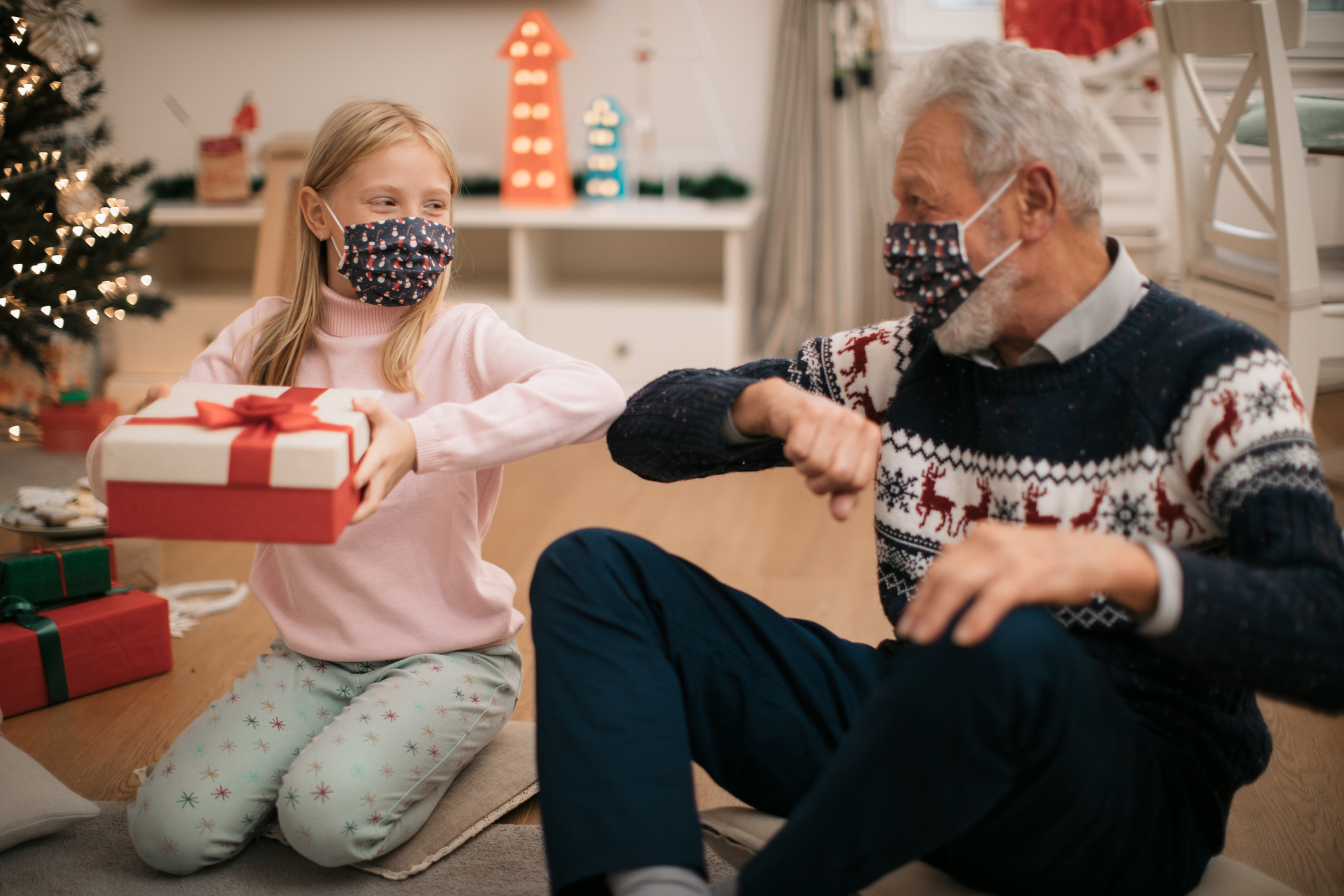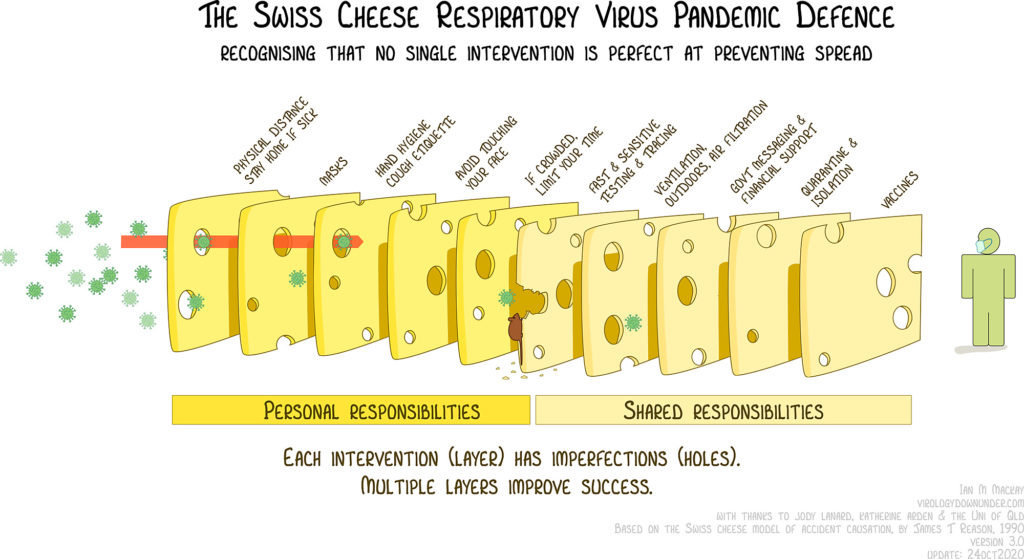As omicron looms and delta wreaks havoc, do your part by staying safe this holiday season

By Monica Manglani, Derek M. Nye and Dr. Catharine Paules
Like everyone else, we have been looking forward to gathering with our loved ones and partaking in holiday traditions we missed out on last year. While we all hoped that this year would be “COVID-free,” we are unfortunately facing a surge of severe COVID-19 cases in central Pennsylvania, largely in unvaccinated individuals.
In addition, a new variant — omicron — has been identified and has even vaccinated individuals rethinking the safety of their holiday plans.
What is the current state of the pandemic?
Recently, there has been a dramatic increase in the number of COVID-19 hospitalizations in Pennsylvania. We are concerned about the current trends due to the approaching holiday season, the easing of prevention measures such as mask mandates and a statewide fully vaccinated rate of less than 60% as of Friday.
The four hospitals of Penn State Health had 158 total COVID-19 inpatients (154 adult and four pediatric), as of Wednesday. Of these, 47 patients were in critical care; 28 of them on a ventilator. Current hospitalizations are driven by the delta variant and vaccination remains highly effective at preventing this. At Penn State Health, unvaccinated individuals account for two-thirds of our hospitalized COVID-19 cases and more than 75% of those who require intensive care. Dramatic increases in the number of patients who require intensive care for their COVID-19 infection mean that our hospitals have less capacity to provide care for patients with other illnesses and injuries. With the current surge of intensive care unit cases driven by the delta variant in unvaccinated patients and omicron on the horizon, the 2021-22 holiday season presents a serious risk to our current health care capacity.
Examining omicron
What is the omicron variant?
The omicron variant is a version of the virus that causes COVID-19, which has developed changes in its genetic code. Scientists are watching omicron closely because it has changes that may give it an advantage over delta by allowing it to spread more rapidly or infect people with prior immunity. This already may be happening in places like the United Kingdom and South Africa.
There are many unknowns about omicron. We do not yet know for sure if the variant will spread more rapidly than delta or replace it as the dominant strain in the United States. We do not know how it will affect vaccinated individuals or those who have previously had COVID-19. And we do not know how sick it will make people compared to delta.
While we will have to wait and see how omicron affects our communities, now is the time to increase vigilance to protect ourselves and our families, friends and communities.
How can you enjoy the holidays safely?
Get vaccinated! Vaccination remains the best defense we have against COVID-19. It protects very well against the delta variant and will very likely protect against severe illness with omicron.
If you’re eligible, consider getting a booster shot. This extra protection is important for the delta variant, particularly if you are older or have underlying health conditions, and may become even more important for omicron.
If you’ve previously recovered from COVID-19, you still should be vaccinated to stay healthy. Vaccination will boost your immunity and may be particularly important for omicron, as large numbers of reinfections are being reported. Talk to your doctor if you have questions or concerns about the COVID-19 vaccines.
In addition:
— Make a backup plan for the holidays if you or a loved one has an immune condition that makes you less likely to be protected by the vaccine or are unable to be vaccinated. Consider joining celebrations remotely or work together with your family and friends to make the risk as low as possible.
— Avoid large gatherings and use masks and distancing when you gather with those outside your household.
— Move celebrations outdoors if you are able or increase ventilation inside by opening windows.
— Ask everyone in attendance at your gathering to limit activities for a week prior to decrease the risk of COVID-19 exposure.
— Use a rapid COVID-19 test right before you travel or gather; and if the result is positive, stay home and call your doctor’s office for guidance.
Although none of these interventions is perfect, by combining them with vaccination, you can decrease the risk of COVID-19 for everyone at your family gathering.
Moving forward
This pandemic has been emotionally and mentally challenging for all of us. It’s important to give yourself and others grace as we acknowledge how hard the past 20-plus months have been. The only way to move forward through this is together. By vaccinating, boosting and taking other precautions, you can do your part to stay healthy and, by doing so, allow our health care system to continue to serve you during this holiday season.
Stay safe and be well.
Dr. Catharine I. Paules is an infectious diseases physician at Penn State Health Milton S. Hershey Medical Center. Monica Manglani and Derek M. Nye are students in the Medical Scientist (M.D., Ph.D.) Training Program at Penn State College of Medicine.
(This article originally appeared in LNP|LancasterOnline on Dec. 12, 2021.)
If you're having trouble accessing this content, or would like it in another format, please email Penn State Health Marketing & Communications.

